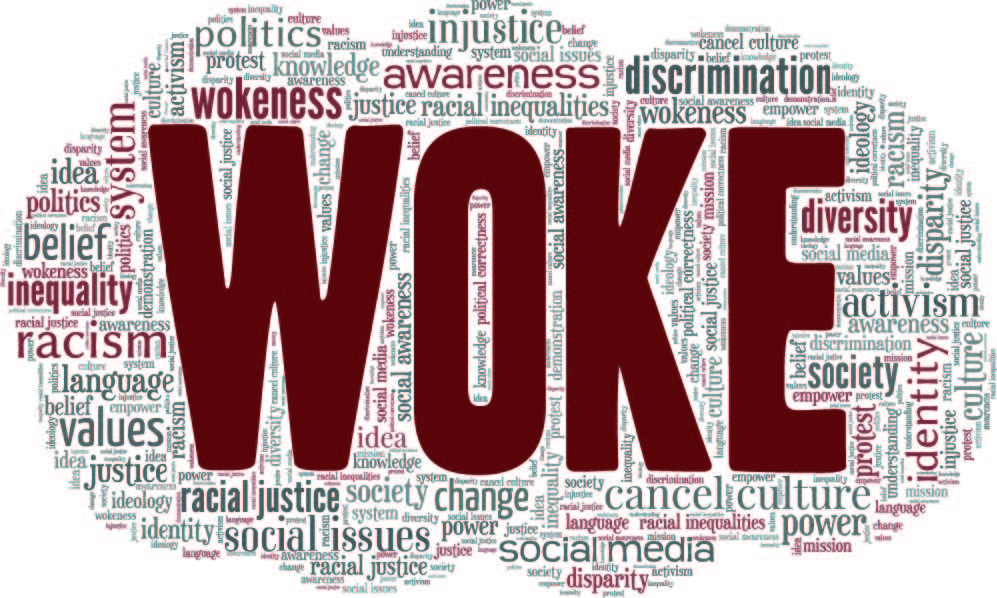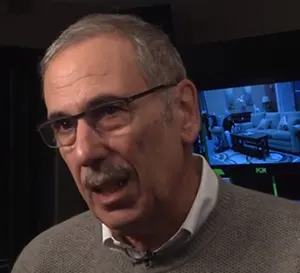Published on: April 3, 2025
By Daniel Butcher
As the political pendulum swings, ideas and policies that were once uncontested and niche become controversial and mainstream. Often, terms used to define academic discourse are redefined by politicians and pundits.
For example, Academy of Management Scholar Quinetta Roberson of Michigan State University said that terms such as diversity, equity, and inclusion (DEI), critical race theory (CRT), and woke have been removed from their original context and weaponized to support people’s political ideologies.
“When people use terminology like woke [in a disparaging sense], you’ve already told me everything I need to know, because it is not a scholarly construct—it is not its intended meaning; they’re using it in a different way,” Roberson said. “They’ve removed its context and significance and politicized it.
“Also, people are equating woke strategies with DEI, and if you unpack that, their conceptualization of DEI becomes primarily about race and maybe a little bit about LGBTQ, but it’s race and ethnicity primarily,” she said. “You don’t hear about it when people are talking about gender, veteran status, or all of the things that are protected categories like disability.
“It becomes this dog whistle for why the speaker doesn’t like certain things about how race is discussed.”
Opinions differ on why that is the case. But repurposing language has long history among political movements. Sometimes, it’s simply a way to deflect uncomfortable topics of conversation or debate.
“There are some people who consider words like equity to mean that some people get a bigger slice of a fixed pie—some people are going to get ahead and some people are not,” Roberson said. “If they think about diversity training, in their mind, that means that some people are going to be made to feel bad about how others have been treated unfairly.
“It’s this conflict-management strategy, where they say, ‘Let’s not talk about it at all—some people had it bad years ago, but we are a post-racial society,’” she said.
“If people use certain terminology, I already know where they sit, and am less likely to engage in a debate with them, because I know that they’re going on opinion or rhetoric rather than on evidence.”
-
Daniel Butcher is a writer and the Managing Editor of AOM Today at the Academy of Management (AOM). Previously, he was a writer and the Finance Editor for Strategic Finance magazine and Management Accounting Quarterly, a scholarly journal, at the Institute of Management Accountants (IMA). Prior to that, he worked as a writer/editor at The Financial Times, including daily FT sister publications Ignites and FundFire, as well as Crain Communications’s InvestmentNews and Crain’s Wealth, eFinancialCareers, and Arizent’s Financial Planning, Re:Invent|Wealth, On Wall Street, Bank Investment Consultant, and Money Management Executive. He earned his bachelor’s degree from the University of Colorado Boulder and his master’s degree from New York University. You can reach him at dbutcher@aom.org or via LinkedIn.
View all posts
Up next....
AI Is a Tool to Boost Efficiency, Not to Reduce Headcount
Source: Shutterstock
By Paul Friedman
Artificial intelligence is often seen as a threat to employment, but it can be used to preserve jobs in times of uncertainty such as the current one when many economists are sounding the alarm about a looming recession.
Academy of Management Scholar Peter Bamberger of Tel Aviv University said AI can be used to help businesses maintain skilled workforces when they may have to find ways to cut costs.
“What kind of jobs may disappear? What kinds of skills will you still need? What skills can we do without? There’s uncertainty there,” Bamberger said. “Perhaps you want to take that workforce and upgrade them over time.
“You have to know where your business is going and have a good sense as to what kinds of competencies you need,” he said. “There are clearly benefits to retaining your workforce as long as you can afford to train them to augment the AI and enhance its value.
“Increasingly organizations are doing this and using AI in this process.”
Bamberger said AI is now allowing organizations to better understand how to leverage and develop the talent in their workforce.
“Often we refer to something called the talent marketplace, something that organizations probably should have been doing decades ago, which is keeping inventories of their workforce’s competencies and skills,” Bamberger said. “AI is enhancing the ability of organizations to leverage the workforce they have in place by moving people around on short-term internal gigs in organizations and getting them prepared for positions that might open up in the future.
“These are systems that help organizations enhance the competency level of their workforce and limit the need to necessarily turn to the external labor market to secure the talent they need, which can be quite expensive,” he said.
“Ultimately it may offer a far more economical way to maximize the return from investments in human capital.”
There’s also a benefit of AI to employees, according to Bamberger.
“AI—having an understanding of the individual’s background and experiences and skills and competencies—can search through a wide range of projects that may require a month or two of work and then propose those to an employee during that individual’s slack time that they take on this additional project,” he said.
“And if they do enough of these projects over the course of two or three years, they’re going to be set to fill these new roles that they’re interested in doing and the organization needs them to fill.”
-
Paul Friedman is a journalist who worked for 45 years at the three major news networks. He began as a writer and reporter and then became a producer of major news broadcasts, including Nightly News and the Today show at NBC, and World News Tonight with Peter Jennings at ABC. He also served as Executive VicePresident of News at ABC and CBS. Later, he taught journalism as a professor at Columbia University, New York University, and Quinnipiac University. Friedman is now semi-retired and lives with his wife in Florida.
View all posts
Up next....
How Looming Stagflation May Affect Pay
Source: Shutterstock
By Paul Friedman
At a time when some forecasts predict continuing or worsening inflation or stagflation and possibly a recession, pay transparency adds to the pressure on organizations’ decision-makers.
Peter Bamberger of Tel Aviv University, an Academy of Management scholar who published a book based on his research on pay transparency, said managers will need to build systems of compensation that are more justifiable and understandable to employees.
“The first step with pay transparency is not necessarily to disclose pay levels of one employee or another employee, but rather to disclose how pay is determined in the organization,” Bamberger said. “Most employees have no understanding whatsoever how their pay is determined in the organization and how other people’s pay is determined in the organization.
“Simply understanding pay processes and procedures, all the evidence suggests, has beneficial effects for both employees and employers with very few, if any, side effects—except that employers have to work harder to build these equitable and fair systems.”
Bamberger said pay transparency is always problematic for decision-makers.
“No one wants their decisions to be transparent to other people—transparency is great when we are the observers, but when we’re the observed, it’s a terrible thing,” Bamberger said. “It comes with potentially unintended negative consequences, especially when you have to think about what happens when people see that they are paid less than other people.
“It becomes problematic for the ones making the decisions, and it can be problematic for the organization,” he said. “So there are complications with pay transparency; there’s no question about it.”
Still, Bamberger said he believes that “sunshine is the best antiseptic,” and pay transparency can produce surprising positive results.
“What the evidence shows is that most employees underestimate how much their superiors are making, and when you think about that, it generates a tendency of individuals to think that they’ll do better by leaving their current organization,”
Bamberger said. “The grass is always greener; if I want a pay increase, I have to go outside, and that movement has costs to the current employer.
“So there’s merit, potentially, in letting people see what the potential income might be for moving up within the organization,” he said.
“I think organizations that are forced to be more accountable and hence build more effective pay systems—more explainable and justifiable pay systems—ultimately enhance the quality of the human capital they can bring in and hold to enhance their competitiveness, which becomes really important in a period of stagflation.”
-
Paul Friedman is a journalist who worked for 45 years at the three major news networks. He began as a writer and reporter and then became a producer of major news broadcasts, including Nightly News and the Today show at NBC, and World News Tonight with Peter Jennings at ABC. He also served as Executive VicePresident of News at ABC and CBS. Later, he taught journalism as a professor at Columbia University, New York University, and Quinnipiac University. Friedman is now semi-retired and lives with his wife in Florida.
View all posts
Up next....
What to Do When Your Boss Asks You to Work Late
By Daniel Butcher
You recently started a new job and your boss asks you to work late. Do you say yes, do you try to come up with a compromise, or do you say, “no way!”?
Academy of Management Scholar Abbie Shipp of Texas Christian University, who coauthored an Academy of Management Review article related to this topic with TCU colleague Hettie Richardson, said that when she had recently begun a new job as an assistant professor, there was an important meeting scheduled from five to nine p.m.
“I said, ‘A work meeting scheduled for after most people have left? What are you doing? I have to get home and take care of my son,’ but to this group, that was just normal because they wanted the privacy for the meeting’s sensitive topic,” Shipp said.
“When we get in situations like these, we have choices—we can either just go to the meeting deliberately and entrain to that schedule, or maybe we could passively push back and say, ‘I’ll be there, but I’m only going to stay from five to seven,’ or we could actively resist and say, ‘This isn’t right; this disadvantages people who don’t want to work in the evenings so I’m not going,’” she said. “Yet there are different outcomes that can happen in response to that decision.
“Sometimes it can be good because you may resist a meeting that others also think is mistimed—but other times you may be viewed as a rebel who is unwilling to adapt your schedule.”
Beyond meetings, Shipp said that there are other examples where it isn’t a simple choice between full compliance versus resistance.
“There are times when your preferred timing doesn’t match the situation, but you respond by creating an even more strict handling of time,” Shipp said. “Maybe you’re in an environment that doesn’t give you any structure about when and where to work but only evaluates your outcomes, given that different people experience time individually, they may each put their own structure in place, and that may further inform what happens at the team or the organizational level.
“Because individuals have views of time or ‘temporal schemata’ for how they interpret their schedules, they view the world through this temporal lens,” she said. “We each have these temporal schemata based on childhood and early work experiences, and that lens is how we each think about time and use time individually.
“We can’t assume that people will just naturally entrain to team or organizational schedules; we really have to look at each individual and see if there’s more going on behind the scenes.”
A sample of Shipp’s AOM research findings:
-
Daniel Butcher is a writer and the Managing Editor of AOM Today at the Academy of Management (AOM). Previously, he was a writer and the Finance Editor for Strategic Finance magazine and Management Accounting Quarterly, a scholarly journal, at the Institute of Management Accountants (IMA). Prior to that, he worked as a writer/editor at The Financial Times, including daily FT sister publications Ignites and FundFire, as well as Crain Communications’s InvestmentNews and Crain’s Wealth, eFinancialCareers, and Arizent’s Financial Planning, Re:Invent|Wealth, On Wall Street, Bank Investment Consultant, and Money Management Executive. He earned his bachelor’s degree from the University of Colorado Boulder and his master’s degree from New York University. You can reach him at dbutcher@aom.org or via LinkedIn.
View all posts
Up next....
When It’s Time to Look for a New Job
By Daniel Butcher
Sometimes it makes sense to say “This too shall pass” and weather the storm at work. In other cases, it’s best to jump ship.
Academy of Management Scholar Abbie Shipp of Texas Christian University, who coauthored an Academy of Management Review article on how people craft career narratives that affect how they fit in their current organization with Karen Jansen of North Carolina State University, said few jobs are forever.
“You thought you were going to stay here forever, and then your boss suddenly leaves, and you get a horrible boss,” Shipp said. “That’s a big event in your story, and how well you fit now has changed, so in response to the question ‘Am I going to stay here?’ is now very different.
“The fit literature had not addressed that question of change, so we have done some additional work to really explore what that means; we can’t just ask people, ‘Do you fit?’ at a moment in time to get the whole story,” she said. “You and I might report the same numerical number of job satisfaction on a questionnaire, but if the trajectory you’re expecting is going down and the trajectory I’m expecting is going up, I’m going to be super happy to stay, whereas you’re going to be planning a departure—yet, on the engagement survey, it will look exactly the same.
“It’s really about bringing in that temporal context.”
It’s easy to stagnate in a job even after the situation changes for the worse due to inertia. Employees shouldn’t be afraid to examine their changing work environment and make a call whether it still makes sense to be loyal to their employer. As for bosses, they need to actively try to boost morale after a period of more changes than usual.
“What it means for leaders is: You have to ask people, ‘What’s your story? Where have you been? Where are you going, and how does that provide an incentive for you to stay here, at least for the time being?” Shipp said. “We call it temporal baggage.
“When you come to an organization, you bring the temporal baggage of the past and the future, which is, ‘Where have you been before, and what do you expect if you’re going to stay here?’ and we have to understand that whole story,” she said.
“We ask about fit in the middle of things at one point in time, but we need to understand that whole story, and we have to keep asking, because it will naturally change as personal situations or work events change.”
A sample of Shipp’s AOM research findings:
-
Daniel Butcher is a writer and the Managing Editor of AOM Today at the Academy of Management (AOM). Previously, he was a writer and the Finance Editor for Strategic Finance magazine and Management Accounting Quarterly, a scholarly journal, at the Institute of Management Accountants (IMA). Prior to that, he worked as a writer/editor at The Financial Times, including daily FT sister publications Ignites and FundFire, as well as Crain Communications’s InvestmentNews and Crain’s Wealth, eFinancialCareers, and Arizent’s Financial Planning, Re:Invent|Wealth, On Wall Street, Bank Investment Consultant, and Money Management Executive. He earned his bachelor’s degree from the University of Colorado Boulder and his master’s degree from New York University. You can reach him at dbutcher@aom.org or via LinkedIn.
View all posts
Up next....
Why Fitting in at Work Seems to Change So Much
By Daniel Butcher
“No man ever steps in the same river twice, for it’s not the same river and he’s not the same man,” as the ancient Greek philosopher Heraclitus said, then it follows that you can’t walk into the same office twice. A job that’s a perfect fit one day may not be the next, especially if you get a new boss who doesn’t appreciate your talents or you’re passed over for a promotion.
Academy of Management Scholar Abbie Shipp of Texas Christian University, who coauthored an Academy of Management Review article on how people craft career narratives that affect how they fit at work with Karen Jansen of North Carolina State University, said that, for most people, it’s a fluid situation.
“People weren’t really talking about how people evolve over time; they were talking about, ‘Do you fit at work or not?’ as if it’s a yes-or-no question, but it implicitly means right now,” Shipp said.
“If I ask you that question today, ‘Are you a good fit at your current employer?’ you can come up with an answer, but you may report an answer that looks different than somebody else who objectively looks the same on paper but worked someplace else before,” she said.
How people perceive fit at any point in time depends on where they’ve been before and what they expect in the future.
“These stories about fit are in medias res, a Latin term that means in the middle of things,” Shipp said. “When we ask people things like, ‘Do you fit?’ one of the things we’re getting is this implicit response, ‘Well, this is right now, but the only way that I can understand right now is to know where have I been and where I am going.’
“And so we looked at the way in which people naturally tell stories, and how it’s not just in the middle of things, but also we’re constantly recrafting those stories as events happen, and now the future looks a little bit different,” she said.
A sample of Shipp’s AOM research findings:
-
Daniel Butcher is a writer and the Managing Editor of AOM Today at the Academy of Management (AOM). Previously, he was a writer and the Finance Editor for Strategic Finance magazine and Management Accounting Quarterly, a scholarly journal, at the Institute of Management Accountants (IMA). Prior to that, he worked as a writer/editor at The Financial Times, including daily FT sister publications Ignites and FundFire, as well as Crain Communications’s InvestmentNews and Crain’s Wealth, eFinancialCareers, and Arizent’s Financial Planning, Re:Invent|Wealth, On Wall Street, Bank Investment Consultant, and Money Management Executive. He earned his bachelor’s degree from the University of Colorado Boulder and his master’s degree from New York University. You can reach him at dbutcher@aom.org or via LinkedIn.
View all posts
Up next....
A Challenge of Adapting to a New Company
By Daniel Butcher
New hires face many challenges when they’re getting up to speed at a new organization. One of the biggest is picking up on—and adapting to—scheduling and time management, including how punctual people tend to be and what hours employees are expected to work.
Academy of Management Scholar Abbie Shipp of Texas Christian University, who coauthored an Academy of Management Review article on this topic with TCU colleague Hettie Richardson, said that people can follow or resist bosses’ attempts to coordinate the pace and rhythm of work.
“We know that people, teams, and organizations have a tendency to synchronize their schedules to things outside themselves. So, if your office work week is Monday through Friday, you start your week over on a Monday,” Shipp said. “You don’t really think about it; that’s just the schedule.
“Teams often schedule things structurally and with their schedules based on organizational zeitgebers, or ‘time-givers’, those pacers that tell you when and how to do things,” she said. “Organizations synchronize more broadly based on events or deadlines such as, ‘This is the time of year when our taxes are due,’ or ‘This is the time of year when our annual reports are due,’ or board meetings, etc.”
Shipp and Richardson focused on the individual level.
“Most people assume that if you have a pacer coming from the outside telling you when something should happen, you should just automatically synchronize to that schedule,” Shipp said. “But we said, ‘Wow, no, we’re dealing with individuals—it’s just not that easy’ because people experience and interpret time differently from each other.
“For example, if I previously worked at an organization and we worked Monday through Friday, eight a.m. to five p.m., then I take a new job, and people stay at work until 7p.m.and then come in the next day whenever they want,” she said. “For me, that feels very wrong—I won’t know why, but I’ll think, ‘No, working from eight to five is normal—these are business hours.’ But who says what’s normal?”
Shipp and Richardson found that there is a range of other outcomes besides simply blindly following an organization’s work schedule.
“If we look at the individual level, you might go along to get along,” Shipp said. “I might say, ‘Okay, I’ll stay till seven and then come in later tomorrow,’ but I’d be doing so deliberately, and I might be frustrated with adaptation to a schedule that’s different from what I’m used to and comfortable with.
“Unless the person can change the broader context to their view, this frustration likely accumulates over time and could lead them to quit,” she said. “So leaders have to have individual conversations to better understand what schedules each person thinks is ‘right.’”
A sample of Shipp’s AOM research findings:
-
Daniel Butcher is a writer and the Managing Editor of AOM Today at the Academy of Management (AOM). Previously, he was a writer and the Finance Editor for Strategic Finance magazine and Management Accounting Quarterly, a scholarly journal, at the Institute of Management Accountants (IMA). Prior to that, he worked as a writer/editor at The Financial Times, including daily FT sister publications Ignites and FundFire, as well as Crain Communications’s InvestmentNews and Crain’s Wealth, eFinancialCareers, and Arizent’s Financial Planning, Re:Invent|Wealth, On Wall Street, Bank Investment Consultant, and Money Management Executive. He earned his bachelor’s degree from the University of Colorado Boulder and his master’s degree from New York University. You can reach him at dbutcher@aom.org or via LinkedIn.
View all posts
Up next....
Communication Is Key When Adapting to New Schedules
By Daniel Butcher
It’s difficult for workers to retain productivity and morale while trying to adapt to unfamiliar schedules. But discussing preconceived notions about work schedules with the boss and colleagues can help.
Academy of Management Scholar Abbie Shipp of Texas Christian University, who coauthored an Academy of Management Review article related to this topic with TCU colleague Hettie Richardson, said that she has two pieces of advice for people in such a situation.
1. Number one is awareness.
- “When I talk to people about how they think about their time, oftentimes people aren’t even aware of their assumptions,” Shipp said. “My coauthor Hettie and I laughed after I provided our view of things happening outside of business hours. She said, ‘That’s so funny. My mom was a teacher, so I don’t think about work as Monday through Friday, eight to five. She worked evenings and weekends, so I learned from her that you work when the work needs to be done. You take breaks when you need a break.’”
-
- In contrast, Shipp said that her mom worked in a doctor’s office Monday through Friday from 8:30 to 4:30. These different histories explained how she and her coauthor viewed “work time” very differently.
-
- “If you can build that awareness of what your view of time is, the schema in which you think about the hour, the day, and the week, etc.,” Shipp said. “That’s very helpful, because you’re bringing to the surface what you think is right and wrong in your view of the world and maybe causes some conflict with other individuals.
-
- “It isn’t necessarily right or wrong—it’s just your experience, so number-one is awareness,” she said.
2. Shipp’s second piece of advice is to talk about the challenges of adapting to the new schedule and situation with other people.
- “If you’re an individual, talk about that with your team; if you’re a leader, ask the people on your team, ‘What are some of your assumptions about time?’” Shipp said. “That’s a complicated question, and so the easy way to do it is to start asking people about when and how they like to work: ‘Where did you get those ideas? When do you get frustrated with other people’s schedules or deadlines?’
-
- “Really bring that to the forefront, not just your own assumptions, but also talking about it in work groups, asking, ‘Where do we have potential for conflict?’ and then ‘How can we compromise?’” she said. “Maybe you like to leave at 5:00, whereas I like to stay till 7:00; if we’re going to do work together, let’s make sure meetings end at 5:00 for you, but then please don’t expect to contact me until later the next morning since I’ll get there later than you.
“That seems so simple, but people oftentimes don’t talk about it and don’t know their dominant view; that can lead to resentments and conflicts, which are all preventable if we just talk about how we think about time at work.”
A sample of Shipp’s AOM research findings:
-
Daniel Butcher is a writer and the Managing Editor of AOM Today at the Academy of Management (AOM). Previously, he was a writer and the Finance Editor for Strategic Finance magazine and Management Accounting Quarterly, a scholarly journal, at the Institute of Management Accountants (IMA). Prior to that, he worked as a writer/editor at The Financial Times, including daily FT sister publications Ignites and FundFire, as well as Crain Communications’s InvestmentNews and Crain’s Wealth, eFinancialCareers, and Arizent’s Financial Planning, Re:Invent|Wealth, On Wall Street, Bank Investment Consultant, and Money Management Executive. He earned his bachelor’s degree from the University of Colorado Boulder and his master’s degree from New York University. You can reach him at dbutcher@aom.org or via LinkedIn.
View all posts
Up next....
Should I Stay or Should I Go? Why Fitting in at Work Is a Moving Target
By Daniel Butcher
Just like beauty is in the eye of the beholder, how well you fit in your current job is a personal feeling that can change quickly.
Academy of Management Scholar Abbie Shipp of Texas Christian University, who coauthored an Academy of Management Review article on how people craft career narratives that affect how they fit in at work, with Karen Jansen of North Carolina State University, said people tell stories to themselves and others that reinforce who they think they are and who they want to be.
“If you want to craft the story that keeps you at your organization, you will pick and choose the information that makes a past comparison or a future comparison that makes the present look better,” Shipp said. “If you want to leave your organization, you’re going to look for all the things that make it worse—‘My last job was so much better’ or ‘I bet if I went to that company, this would be better.’
“You can craft whatever story you want, and that’s where I think leaders have a great impact—not just asking employees what their stories are over time and how well they fit, but also helping them to craft a compelling career narrative,” she said.
Shipp speaks from experience.
“I was a department chair—I just finished my term about 18 months ago—and one of the things I would tell people during the pandemic is, ‘Let’s look at what’s working,’” Shipp said. “There’s a lot that got broken in the pandemic, so it can feel like ‘What’s happening?’ to the university and policies and the world, and ‘Should I go someplace else?’”
“Instead, I said, ‘Let’s focus our attention on what is working and why we’re here at TCU, all the things that brought us here’. That constancy is really important when a lot of things are changing,” she said.
“From the organizational change literature, we know that focusing on what’s constant and not changing is as important as what is changing, so leaders can help shape the story by drawing attention to the elements that make that present moment look better.”
A sample of Shipp’s AOM research findings:
-
Daniel Butcher is a writer and the Managing Editor of AOM Today at the Academy of Management (AOM). Previously, he was a writer and the Finance Editor for Strategic Finance magazine and Management Accounting Quarterly, a scholarly journal, at the Institute of Management Accountants (IMA). Prior to that, he worked as a writer/editor at The Financial Times, including daily FT sister publications Ignites and FundFire, as well as Crain Communications’s InvestmentNews and Crain’s Wealth, eFinancialCareers, and Arizent’s Financial Planning, Re:Invent|Wealth, On Wall Street, Bank Investment Consultant, and Money Management Executive. He earned his bachelor’s degree from the University of Colorado Boulder and his master’s degree from New York University. You can reach him at dbutcher@aom.org or via LinkedIn.
View all posts
Up next....
Don’t Assume You Know How People Feel about Remote Work
By Daniel Butcher
Just because you might prefer to work in the office doesn’t mean everyone else does. Many talented, dedicated employees need the flexibility of a remote or hybrid work schedule, or are simply more productive when working from home.
Academy of Management Scholar Abbie Shipp of Texas Christian University, who coauthored an Academy of Management Annals article on the “subjective” experience of time, including its impact on work schedules, with Karen Jansen of North Carolina State University, said that she has had conversations with many senior executives about this topic.
“Those of us who are more advanced in our careers, we had jobs where you worked at the office five days a week, and so it can be very hard if you’re not as productive at home—it’s hard for you to assume that anybody else is,” Shipp said. “We tend to project.
“I had this conversation with a person who said, ‘I just don’t believe people can be productive from home; I know when I’m at home, I’m playing with the dog, or I put in a load of laundry,’ and I said, ‘That’s really interesting, because I feel like when I work from home, I’m so productive; I get to put in a load of laundry, and that refreshes me, and then I come back and I’m working double time, and I’m not interrupted,’” she said. “And they said, ‘Oh, I think interruptions at work are great,’ so we uncovered some of our two different assumptions.
“That person really wanted their office workers to come back Monday through Friday, eight to five—‘That’s the way it should be; nobody could be productive from home,’ whereas I’m thinking, ‘How could you not be productive from home? It’s the perfect environment.’”
Shipp said she also discussed corporate-level policies that work for both the company and all its employees.
“One of the things this leader and I talked about was pushing those decisions down to the department level, and then within departments, really coaching leaders on how to communicate with their employees in ways that are open-minded,” Shipp said. “Enabling a leader to customize work schedules while still allowing coordination—that’s not easy.
“But the first thing you have to do is surface the assumptions, find out what people want and need, and then have the discussion about, ‘How can we meet your needs as the individual, even when the team needs to coordinate?’” she said.
A sample of Shipp’s AOM research findings:
-
Daniel Butcher is a writer and the Managing Editor of AOM Today at the Academy of Management (AOM). Previously, he was a writer and the Finance Editor for Strategic Finance magazine and Management Accounting Quarterly, a scholarly journal, at the Institute of Management Accountants (IMA). Prior to that, he worked as a writer/editor at The Financial Times, including daily FT sister publications Ignites and FundFire, as well as Crain Communications’s InvestmentNews and Crain’s Wealth, eFinancialCareers, and Arizent’s Financial Planning, Re:Invent|Wealth, On Wall Street, Bank Investment Consultant, and Money Management Executive. He earned his bachelor’s degree from the University of Colorado Boulder and his master’s degree from New York University. You can reach him at dbutcher@aom.org or via LinkedIn.
View all posts
Up next....
Why It’s Important to Thank Helpful Coworkers
By Daniel Butcher
Even top performers can get into a funk a work, and workers who usually are willing to help coworkers can stop collaborating. Beyond standard strategies such as promotions and raises, cultivating a collaborative culture that gives credit where credit is due is crucial for motivating such talented, helpful employees.
Academy of Management Scholar Abbie Shipp of Texas Christian University, who coauthored an Academy of Management Review article on how “organizational citizenship behavior” changes over time with Jessica Methot of Rutgers University, David Lepak of the University of Massachusetts Amherst, and Wendy Boswell of Texas A&M University, said that people continuously craft identity narratives to tell evolving stories about themselves.
“The research on organizational citizenship behavior took this approach of ‘People either help colleagues or they don’t,’ not really viewing a longer-term perspective or asking questions such as, ‘What happens if I help all the time and then I get burnt out?’ or ‘What if something happens at work and changes my identity to where I help colleagues more or less often?’” Shipp said.
“We looked at the ways in which some different situations or life cues could change your trajectory of helping over time, and why,” she said. “In terms of practical takeaways, talk to people about their identities and why they help at work and what’s meaningful to them—but also assume that these will change, so keep those conversations going.
“If somebody is one of your top performers today, don’t assume that that would stick.”
There could be ebbs and flows and different events that could—and likely will—impact performance and citizenship behavior.
“When you take that temporal lens, you start to really ask a lot of different questions about, ‘When do people help? How does it change? Is that temporary or permanent?’ etc.,” Shipp said.
“This allows leaders to explore ways to boost the morale of top performers and helpers and encourage them to remain at the organization, continue performing well, and continue to help others, even when things change over time,” she said.
A sample of Shipp’sAOM research findings:
-
Daniel Butcher is a writer and the Managing Editor of AOM Today at the Academy of Management (AOM). Previously, he was a writer and the Finance Editor for Strategic Finance magazine and Management Accounting Quarterly, a scholarly journal, at the Institute of Management Accountants (IMA). Prior to that, he worked as a writer/editor at The Financial Times, including daily FT sister publications Ignites and FundFire, as well as Crain Communications’s InvestmentNews and Crain’s Wealth, eFinancialCareers, and Arizent’s Financial Planning, Re:Invent|Wealth, On Wall Street, Bank Investment Consultant, and Money Management Executive. He earned his bachelor’s degree from the University of Colorado Boulder and his master’s degree from New York University. You can reach him at dbutcher@aom.org or via LinkedIn.
View all posts













